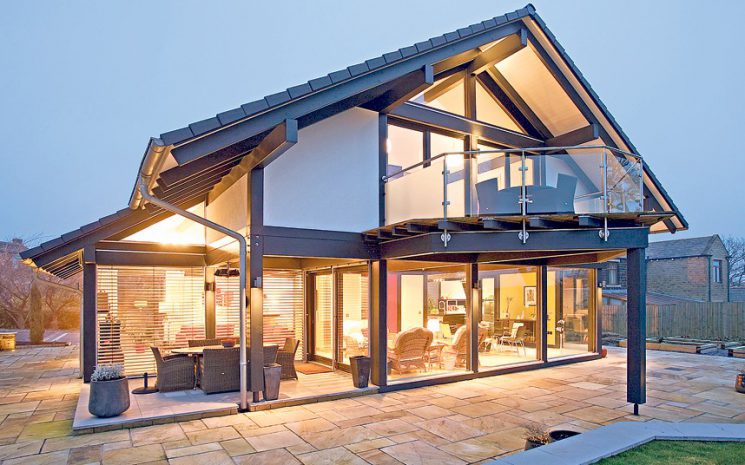For decades (and in fact, centuries), the most common domestic and commercial heating systems have been powered by non-renewable fossil fuels.
However, the reliance on such energy sources continued to fall, particularly with the world’s existing fossil fuel supply expected to be depleted by 2060 at the current rate.
At the same time, UK Prime Minister Boris Johnson has recently rolled out his ambitious 10-point plan for a green industrial revolution on these shores, which will increase the demand for clean energy across the board.
Make no mistake; these factors will combine to make heat pumps increasingly advantageous in the years to come, particularly in big cities such as Glasgow. Here’s why:
What are Heat Pumps and Will They Become More Affordable?
In simple terms, a heat pump is a device that effectively transfers heat energy from a source of heat to what is commonly referred to as a thermal reservoir.
Heat pumps move thermal energy in the opposite direction of spontaneous heat transfer, quite simply by absorbing heat from a cold space and releasing it into a warmer one.
Fundamentally, there are two types of heat pump; which derive their initial energy from the air and the ground respectively. Air-source heat pumps have always been considered to be relatively affordable, with an installation cost of £6,400 in a low-rise flat only approximately £800 more expensive than a comparable gas boiler installation.
Ground-source heat pumps tend to be a little more complex from an installation perspective, and as a result of this, they can currently cost anywhere between £13,000 and £35,000 (according to the Energy Saving Trust).
This cost is likely to be on the higher side in busy and high-demand areas such as Glasgow, where contractors can potentially charge a slightly higher premium for their services.
Clearly, ground-source pumps are much more expensive, but this trend is likely to change in line with increased subsidies (such as the RHI Scheme) and the development of more accessible technology.
The Main Advantages of Heat Pumps in the Current Climate
This offers an insight into one of the main advantages of heat pumps (both now and particularly in the future), as they’ll become increasingly affordable while simultaneously offering access to cheaper energy.
More specifically, in a well-insulated property, every single kilowatt of electricity used to power the heat pump can provide up to four kilowatts of free energy, creating an incredibly attractive position from the perspective of home-owners.
This will have particular benefits in cities such as Glasgow, where properties tend to be very well insulated and can already help to drive significant efficiency and cost savings.
Heat pumps in general also require professional maintenance every three to five years, which compares favourably to other heating systems on the market. This type of energy source is also renowned for being durable, with some systems capable of lasting for up to five decades in the right circumstances.
From an environmental perspective, it also stands to reason that heat pumps can reduce your household’s carbon footprint over time.
From heat pumps in Glasgow to those installed anywhere in the UK, these devices help to convert energy into heat incredibly efficiently in comparison with more traditional gas systems. For example, a water-based heat pump is at least 600% more efficient than a gas boiler, which has huge connotations in terms of energy consumption and future savings.
This benefit will become increasingly advantageous over time, especially as government-backed initiatives help to lower installation costs and boost average household finances.
By offering greater energy efficiency in insulated homes, heat pumps can also act as de facto air conditioners and help to cool your interior during the bright months of summer.





